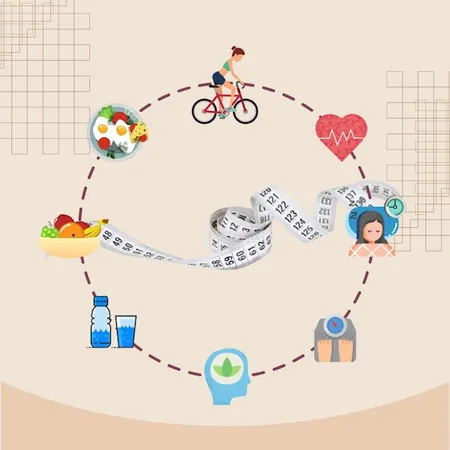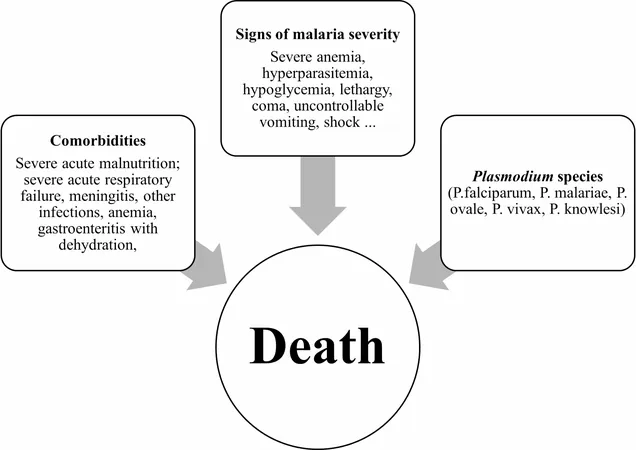
Are Weight Loss Drugs Fueling a Rise in Eating Disorders?
2025-04-05
Author: Rajesh
In today's society, rapid weight loss has become synonymous with the use of weight-loss medications, particularly GLP-1 agonists like Ozempic and Wegovy. While these medications are primarily used to treat Type 2 diabetes, their effectiveness in promoting weight loss has prompted broader use. However, the question arises: at what point does healthy weight loss morph into the territory of eating disorders?
Understanding GLP-1 Drugs
Glucagon-like peptide-1 (GLP-1) agonists were originally designed to help individuals with Type 2 diabetes manage their blood sugar levels. Recent studies show that higher doses can result in significant weight loss, intriguing many who aspire to shed pounds quickly. The National Eating Disorders Association (NEDA) points out that these medications can result in rapid weight loss for 60-70% of users.
Though the benefits for diabetes and cardiovascular health are significant, the side effects often include reduced appetite and a disinterest in food. While this can be advantageous for some, it poses a concerning dilemma for those susceptible to eating disorders or having a complicated relationship with food.
Personal Anecdotes: A Family's Experience
In a more personal reflection, some individuals have noted transformations in family members using these medications. For instance, one individual recounts their mother’s newfound confidence and health after starting Zepbound, yet simultaneously worries about her noticeable decrease in food intake, emphasizing days when she might eat just a single clementine. This dichotomy raises critical ethical discussions about whether these drugs inadvertently endorse disordered eating habits.
It’s revealing that, upon discussion, the mother acknowledged her behavior mirrored aspects of starving herself, even if unintentionally. This instance makes one ponder how many others may be consciously or unconsciously suppressing their food intake while using weight-loss medications.
Media's Role in Normalizing Weight Loss Among Celebrities
In a culture where weight loss is often celebrated, it’s alarming how celebrities using these drugs frequently receive praise rather than concern. Phrases like “Ozempic face” trend on social media, highlighting a dangerous normalization of weight loss through pharmaceuticals rather than lifestyle changes. The glamorization of these medications can distort public perception, encouraging unhealthy habits under the guise of ‘health’.
The implications are extensive: as society prioritizes thinness, we risk fostering environments where individuals feel pressured to resort to any means necessary for weight management, potentially relying on medications instead of developing healthier long-term habits.
Shifting the Narrative
To combat this troubling trend, there must be a collective effort to shift society’s narrative surrounding body image. Embracing the body positivity movement and promoting acceptance of diverse body shapes can encourage healthier relationships with food and self-image.
On a larger scale, media outlets should reconsider their portrayal of weight loss therapies, focusing on the broader implications of their use instead of perpetuating the idea that worth is determined by weight. This conscientious shift could prove instrumental in preventing a culture that idolizes thin bodies leading to an increase in eating disorders among the population.
As conversations around weight loss medications evolve, it's essential to prioritize mental health and well-being, advocating for a culture that values health in all its forms, not just the aesthetic.




 Brasil (PT)
Brasil (PT)
 Canada (EN)
Canada (EN)
 Chile (ES)
Chile (ES)
 Česko (CS)
Česko (CS)
 대한민국 (KO)
대한민국 (KO)
 España (ES)
España (ES)
 France (FR)
France (FR)
 Hong Kong (EN)
Hong Kong (EN)
 Italia (IT)
Italia (IT)
 日本 (JA)
日本 (JA)
 Magyarország (HU)
Magyarország (HU)
 Norge (NO)
Norge (NO)
 Polska (PL)
Polska (PL)
 Schweiz (DE)
Schweiz (DE)
 Singapore (EN)
Singapore (EN)
 Sverige (SV)
Sverige (SV)
 Suomi (FI)
Suomi (FI)
 Türkiye (TR)
Türkiye (TR)
 الإمارات العربية المتحدة (AR)
الإمارات العربية المتحدة (AR)